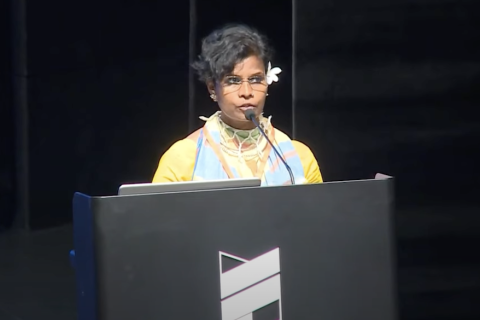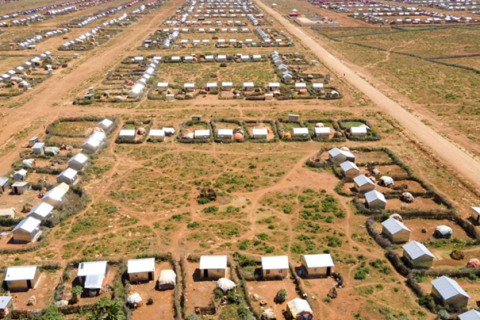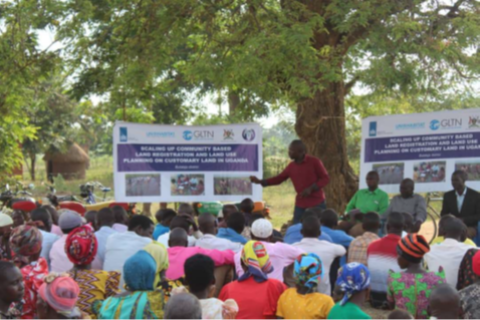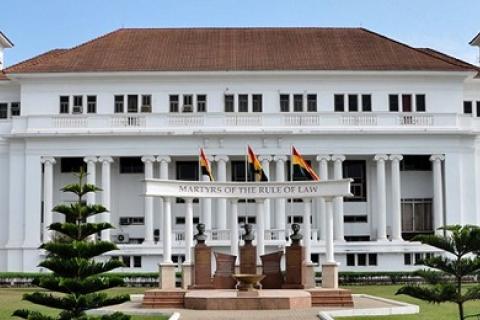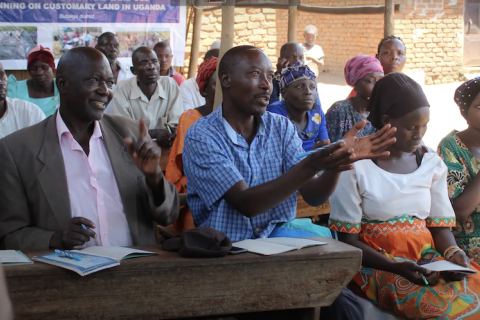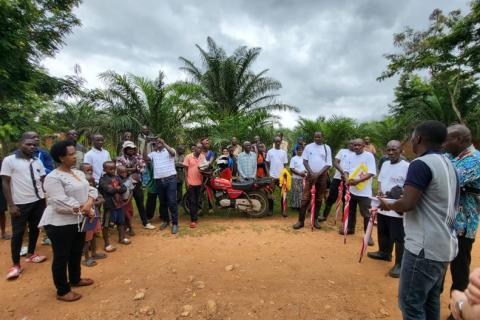UN General Comment No. 26/2022: (Re-)positioning corruption as a land rights concern
Current global developments in the land and human rights spheres show a progressive shift to focus on previously ‘unpopular’ subjects like corruption. The most recent milestone in this regard was the adoption of a General Comment on land and economic, social, and cultural rights (E/C.12/GC/26) by the United Nations Committee on Economic, Social, and Cultural Rights (UN CESCR) in December 2022.
Exercising the governance muscle - why inclusive land governance matters
Inclusive land governance at the local level allows for the community’s broader governance ‘muscle’ to be exercised in a constructive and practical way. This can reduce conflict and spark transformative social change.
Land governance researchers learn the latest skills to communicate their research
The Network of Excellence on Land Governance in Africa recently held a workshop to train academics in how to communicate their research to decision makers. This blog post summarises the main insights and results of the three-day training in Tanzania.
Understanding the link between Climate & LAND-at-scale country projects - Sustainable Solutions for Rural-Urban Migrants in Baidoa, Somalia
As part of a scoping study titled Land Governance for Climate Resilience: A review and case studies from LAND-at-scale projects headed by Richard Sliuzas, Emeritus Professor, University of Twente, IOM explored how climate plays a role in the UN-led Saameynta Joint Programme in Somalia. In this context, climate change is increasingly recognized as a multiplier of insecurity and fragility, where climate-related sudden and slow-onset disasters are driving people to leave their land and migrate. While migrating allows people to find alternative livelihoods and enhance their climate resilience, it can also be associated with instances of maladaptation to climate change. As such, this case highlights durable solutions in climate-driven urban sprawl in Baidoa.
Understanding the link between Climate & LAND-at-scale country projects - Community-Based Approach on Wetland Management Planning in Butaleja District Uganda
As part of a scoping study titled Land Governance for Climate Resilience: A review and case studies from LAND-at-scale projects headed by Richard Sliuzas, Emeritus Professor, University of Twente, GLTN dove into the links between climate and land governance in the ‘’Scaling up community-based land registration and land use planning on customary land in Uganda’’ project. This case study highlights experiences from the community-based wetland management planning approach in Butaleja, Uganda, focusing on how the approach is addressing land governance issues and contributing to community climate resilience.
Exploring the Implications of Supreme Court Ruling on 72,000 Acres of Prime Land in Ghana's Capital: An Analysis of Land Tenure Security
Ensuring secure land tenure is crucial for improving land development, as both local and foreign investors often hesitate to engage in land transactions when there is uncertainty about ownership rights. The term "Land Tenure Insecurity" refers to the apprehension that someone else might claim ownership of the purchased land in the future, creating a significant risk for investment. This phenomenon is particularly common in the Sub-Saharan African Region of which Ghana is no exception. The positive impact of land tenure security is far-reaching.
Webinar Recap: Building Climate Resilience through Inclusive Land Governance
On the opening day of #COP28, we hosted a webinar, “Building Climate Resilience through Inclusive Land Governance,” that delved into the crucial role which inclusive land governance plays in building climate resilience.
RI launches Tenure Tool – the world’s largest online database on Indigenous and local communities’ forest tenure
RRI is excited to announce the launch of its new online Tenure Tool. This platform, hosted on RRI’s website, will give rightsholders, researchers, activists, policymakers, and the public free and easy access to qualitative and quantitative data on the forest tenure rights of Indigenous Peoples, Afro-descendant Peoples, local communities, and the women within those communities.
The Tenure Tool houses the largest and most comprehensive dataset to date on Indigenous, Afro-descendant, and local communities’ forest tenure rights, drawing on longitudinal data sets maintained and regularly updated by RRI.
LAND-at-scale Burundi: The need for a unified vision for inclusive and sustainable land governance
Burundi has the world’s highest hunger score and around 45 percent of the population is affected by food insecurity. The country copes with increasing scarcity of land as a result of increasing population size, returnees and IDPs and climate change. With the majority of Burundians depending on agriculture for their food and livelihoods, land scarcity makes this reliance on agriculture precarious. This pressure on land causes elevated levels of land disputes with over 55% of all court cases being related to conflicts over land.
Scaling as the way forward: defining and understanding scaling
Scaling is at the heart of both the name as well as the strategy of LAND-at-scale. Scaling and scaling potential are key in the way the program was designed and is reflected in the three pillars chosen to realize the aim of the program. The first pillar is about scaling successful initiatives and projects; the second pillar focuses on land governance innovations with scaling potential; and the third pillar covers knowledge management, with a focus on gaining a deeper understanding on the conditions required to make scaling successful.
The complexities of measuring the impact of land projects
This data story reflects on the complexities of measuring the impact of land governance projects and summarize some of the best practices on impact evaluation from the well-known guidelines on the topic.

